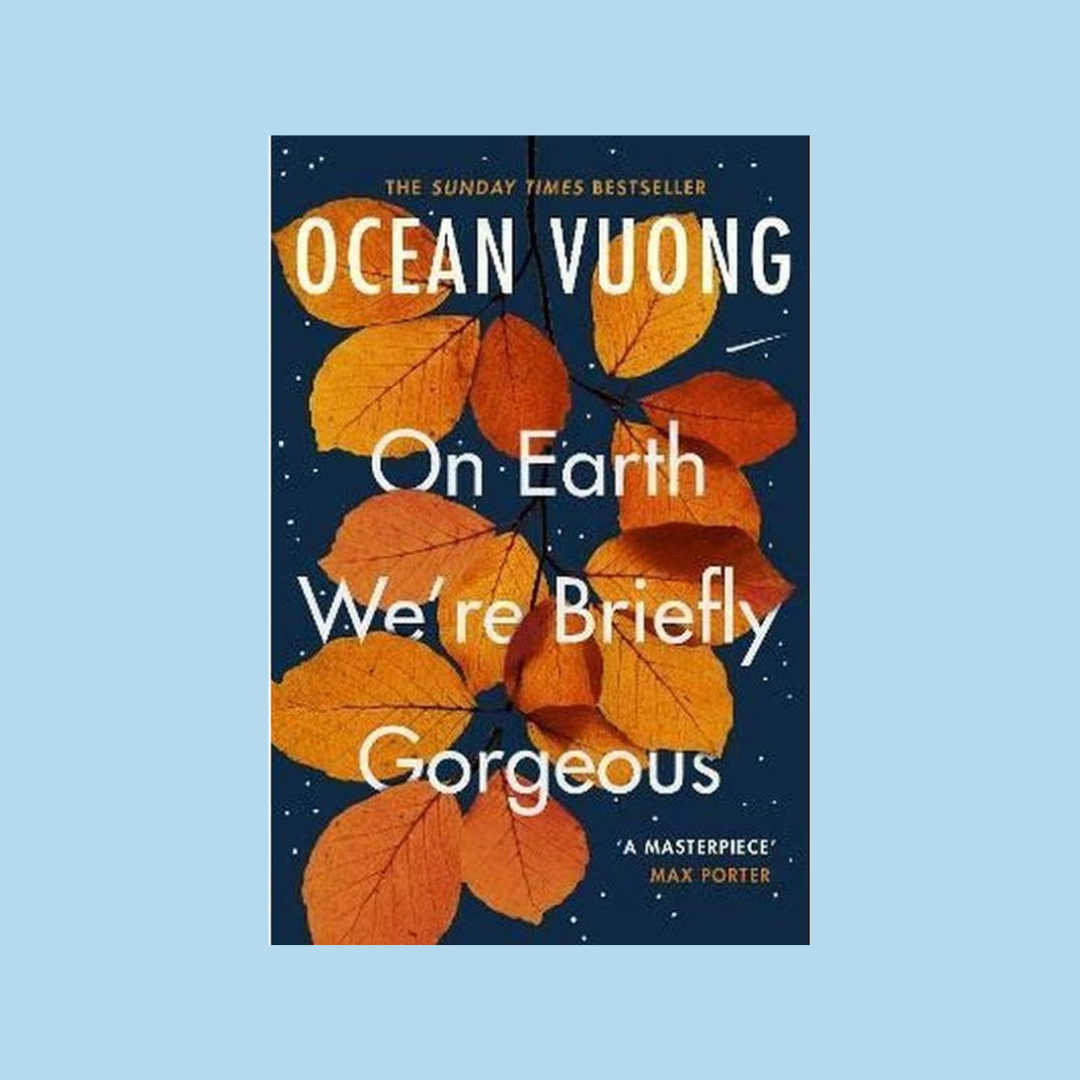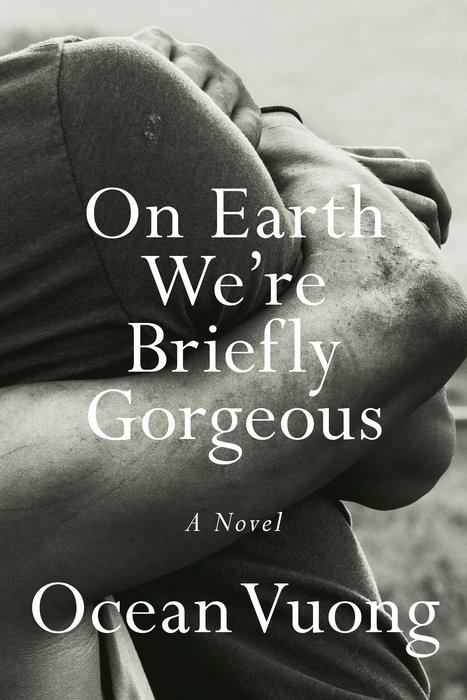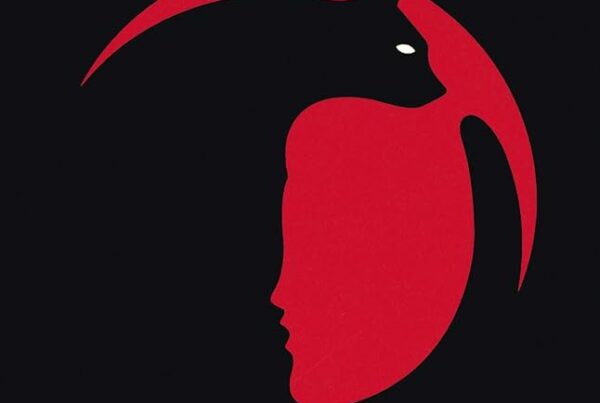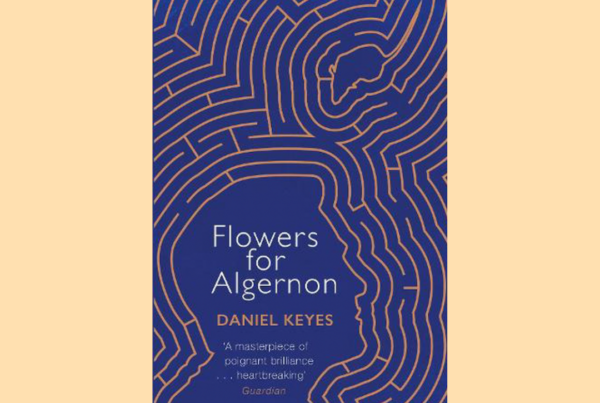
“In Vietnamese, the word for missing someone and remembering them is the same: nhớ. Sometimes, when you ask me over the phone, Có nhớ mẹ không? I flinch, thinking you meant, Do you remember me?
I miss you more than I remember you.”
Written in the form of a letter from Little Dog, the nickname of a Vietnamese-American man in his late twenties, to his illiterate mother, On Earth We’re Briefly Gorgeous by Ocean Vuong is an exploration of the human condition and takes the readers through a deeply personal account about the complexities of identity, love, and the ache of disconnection.
The novel does not have a traditional chronological narrative; rather it employs a nonlinear structure which interweaves various memories and reflections, allowing us to piece together Little Dog’s life by forming connections between different moments in time. As a result, the emotional weight of the novel is strengthened because the reader encounters the impact of certain life experiences, some which occur prior to Little Dog’s birth, before even fully understanding the context. Furthermore, because the novel is an intimate confession to his mother about his life and deepest thoughts, the nonlinear writing style works well as he can disclose the past as it surfaces for him, mirroring the unexpected way that memories are related. Little Dog addresses this himself, saying “I’m not telling you a story so much as a shipwreck – the pieces floating, lit up, finally legible.”
Little Dog lives in Hartford, Connecticut with his mother Rose and grandmother Lan. Being a first-generation immigrant, he writes honestly about the challenges he faced as a young boy trying to assimilate in the United States, while growing up with a mother and grandmother who both suffer from the trauma of living through the Vietnam War. The exploration of the dynamic between Little Dog and Rose is beautiful yet heartbreaking as we are exposed to juxtaposing instances of good and bad exchanges, both ultimately highlighting the differences in their experiences and perspectives. There is a particularly striking moment in part one which had this contrast literally, where Little Dog sequentially writes about the first time Rose hit him when he was four, the time with the remote, the time with a box of Legos, dressing up to spend the Saturday at the end of the month (if there was money left over) at the mall picking squares of chocolate at Godiva and walking around until the shops closed with “our hands empty except for our hands,” the time with her fists, the time with a gallon of milk, Rose riding the Superman rollercoaster at Six Flags with him because he was scared to go alone and how she threw up with her whole head in the garbage can afterwards, when he called her during a panic attack and she started to hum the melody to Happy Birthday to calm him down because it was the only song she knew in English, and the time he finally said stop at thirteen. This portion of the novel stood out to me because the way Little Dog recounts good memories with Rose feels tender, but then interspersing them with bad memories of her being physically abusive, a behavior which stems from her PTSD, starkly reminds the readers of how it must have been like for him living with an unpredictable mother and ultimately the intricate nature of their kinship.
As the novel progresses we are introduced to Trevor, Little Dog’s friend and lover, and their multifaceted relationship serves as a reflection of the internal struggles and societal pressures faced by queer individuals. Little Dog acknowledges that he only has the courage to write about his relationship with Trevor because he knows that Rose will probably never read his letter. Why is he writing the letter then? The letter is an act of reconciliation: it is Little Dog’s attempt to meaningfully connect with Rose in a lasting way by trying to overcome the emotional gap that has been left by the clashing of old and new worlds, and in the process accept all the parts of who he is.
Ocean Vuong is a poet, a fact that is obvious while reading the novel; the writing is deliberate and metaphorical. His ability to transform mundane exchanges through profound lyricism makes this novel a gorgeous observation about identity, love, disconnect, trauma, addiction, and grief, which will preoccupy your mind for more than a brief moment.
On Earth We’re Briefly Gorgeous written by Ocean Vuong and published by Penguin Press is available in most bookstores and online for €12.

“In Vietnamese, the word for missing someone and remembering them is the same: nhớ. Sometimes, when you ask me over the phone, Có nhớ mẹ không? I flinch, thinking you meant, Do you remember me?
I miss you more than I remember you.”
Written in the form of a letter from Little Dog, the nickname of a Vietnamese-American man in his late twenties, to his illiterate mother, On Earth We’re Briefly Gorgeous by Ocean Vuong is an exploration of the human condition and takes the readers through a deeply personal account about the complexities of identity, love, and the ache of disconnection.
The novel does not have a traditional chronological narrative; rather it employs a nonlinear structure which interweaves various memories and reflections, allowing us to piece together Little Dog’s life by forming connections between different moments in time. As a result, the emotional weight of the novel is strengthened because the reader encounters the impact of certain life experiences, some which occur prior to Little Dog’s birth, before even fully understanding the context. Furthermore, because the novel is an intimate confession to his mother about his life and deepest thoughts, the nonlinear writing style works well as he can disclose the past as it surfaces for him, mirroring the unexpected way that memories are related. Little Dog addresses this himself, saying “I’m not telling you a story so much as a shipwreck – the pieces floating, lit up, finally legible.”
Little Dog lives in Hartford, Connecticut with his mother Rose and grandmother Lan. Being a first-generation immigrant, he writes honestly about the challenges he faced as a young boy trying to assimilate in the United States, while growing up with a mother and grandmother who both suffer from the trauma of living through the Vietnam War. The exploration of the dynamic between Little Dog and Rose is beautiful yet heartbreaking as we are exposed to juxtaposing instances of good and bad exchanges, both ultimately highlighting the differences in their experiences and perspectives. There is a particularly striking moment in part one which had this contrast literally, where Little Dog sequentially writes about the first time Rose hit him when he was four, the time with the remote, the time with a box of Legos, dressing up to spend the Saturday at the end of the month (if there was money left over) at the mall picking squares of chocolate at Godiva and walking around until the shops closed with “our hands empty except for our hands,” the time with her fists, the time with a gallon of milk, Rose riding the Superman rollercoaster at Six Flags with him because he was scared to go alone and how she threw up with her whole head in the garbage can afterwards, when he called her during a panic attack and she started to hum the melody to Happy Birthday to calm him down because it was the only song she knew in English, and the time he finally said stop at thirteen. This portion of the novel stood out to me because the way Little Dog recounts good memories with Rose feels tender, but then interspersing them with bad memories of her being physically abusive, a behavior which stems from her PTSD, starkly reminds the readers of how it must have been like for him living with an unpredictable mother and ultimately the intricate nature of their kinship.
As the novel progresses we are introduced to Trevor, Little Dog’s friend and lover, and their multifaceted relationship serves as a reflection of the internal struggles and societal pressures faced by queer individuals. Little Dog acknowledges that he only has the courage to write about his relationship with Trevor because he knows that Rose will probably never read his letter. Why is he writing the letter then? The letter is an act of reconciliation: it is Little Dog’s attempt to meaningfully connect with Rose in a lasting way by trying to overcome the emotional gap that has been left by the clashing of old and new worlds, and in the process accept all the parts of who he is.
Ocean Vuong is a poet, a fact that is obvious while reading the novel; the writing is deliberate and metaphorical. His ability to transform mundane exchanges through profound lyricism makes this novel a gorgeous observation about identity, love, disconnect, trauma, addiction, and grief, which will preoccupy your mind for more than a brief moment.
On Earth We’re Briefly Gorgeous written by Ocean Vuong and published by Penguin Press is available in most bookstores and online for €12.




